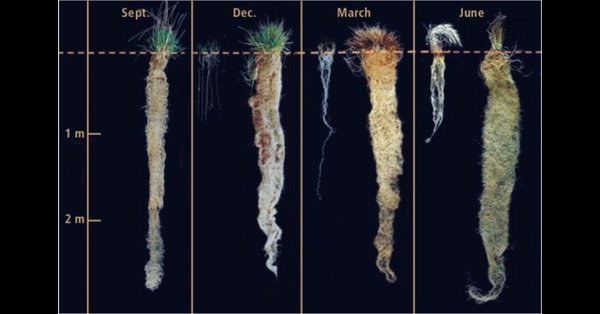
Eat This Newsletter 083 Has it really been 6 weeks?
Amazingly, I came off my self-imposed treadmill of daily podcasts more energised than when I started, which is just as well as I have a bit of a backlog of interesting things that I found and that I think are worth sharing.
Better get started.
- A database of forgotten antibiotics could help medical researchers to find new ones that, I sincerely hope, won’t be frittered away on helping raise livestock intensively.
- “What, exactly, are pickles?” If you’re in Texas, the answer is “cucumbers, and only cucumbers”. That doesn’t seem right.
- Pearl millet bred to contain more iron improves learning and memory of Indian adolescents.
- How to fight a giant government conspiracy to kill all the olive trees and so clear the way for industrial development: with an outdoor concert! That will show them.
- A fabulous take on industrial foods and “authenticity” as it relates to Jewish food.
- I’ve eaten purslane, and really enjoyed it, but around here all the purslane comes with added dog urine. That doesn’t bother Aylin Öney Tan in her paean to purslane. (Don’t bother following the links; they’re mostly pointless.)
- Cambridge University serves up a gigantic plate of all its research on why we just can’t stop eating.
- “[A]griculture is much better off when governments stay out of our business and let us grow our food without interference.” A New Zealand farmer tells it like it is.
- Terrific reporting from Dan Charles at NPR, on how the FDA tracked down the source of the outbreak of E. Coli in romaine lettuce.
- “If the means of production are in the hands of people outside our community, we are dependent on those who might not have our best interests in mind.” A black, female, American farmer speaks.
- It’s not which whole grains you eat but how much that protects against type 2 diabetes. Danish men who ate 50g a day or more were one-third less likely to develop type 2 diabetes.
- Great to see the Botanists in the Kitchen getting their due respect.
Heritage cereals anyone?
In the middle of Our Daily Bread, I got a message from Shelley at Against the Grain Farms in Canada. They’ve been working on restoring old varieties of wheat and barley for the past 31 years and they’re looking to contact farmers and researchers who would like to collaborate in some participatory plant breeding.
Winding Down Our Daily Bread 31

Podcast: Play in new window | Download (Duration: 4:09 — 3.4MB)
Subscribe: Google Podcasts | Spotify | Android | RSS | More
What more is there to say? Plenty, of course, but not this time. This is the final episode of this run of Our Daily Bread.
I say that as if there will be another, but all I’m really doing is leaving the door slightly ajar. I’ve had a lot of fun and learned a lot. I hope you have too.
For a final thought, I cannot do better than Elizabeth David, from her meticulous chapter on The Cost of Baking Your Own Bread in English Bread and Yeast Cookery. After going through nutrition, prices and all that she writes:
“So much for price comparisons. Long before you’ve finished doing the sums you realise that what counts is the value of decent bread to you and to the people you are responsible for feeding, and what that is, it’s up to us to work out for ourselves.”
A Perennial Dream Our Daily Bread 30

Podcast: Play in new window | Download (Duration: 8:04 — 6.6MB)
Subscribe: Google Podcasts | Spotify | Android | RSS | More
Wheat is an annual plant; it dies after setting seed. Each year, the farmer has to prepare the land, sow seed, fertilise and protect the plants. When the ground is bare, between crops, wind and water can erode the soil. The shallow root systems of annual plants fail to exploit the resources of the soil and do little to improve it. So although wheat feeds us, it does so at considerable cost to the environment. It isn’t sustainable.
What if wheat were perennial?

Photo by Jerry D. Glover; annual wheat on the left, Kernza™ on the right.